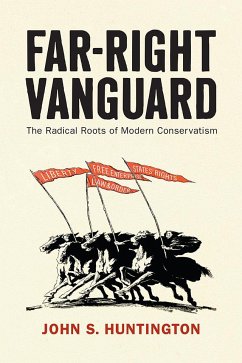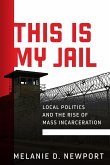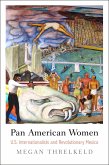The history of the ultraconservative movement, its national network, and its influence on Republican Party politics Donald Trump shocked the nation in 2016 by winning the presidency through an ultraconservative, anti-immigrant platform, but, despite the electoral surprise, Trump's far-right views were not an aberration, nor even a recent phenomenon. In Far-Right Vanguard, John Huntington shows how, for almost a century, the far right has forced so-called "respectable" conservatives to grapple with their concerns, thereby intensifying right-wing thought and forecasting the trajectory of American politics. Ultraconservatives of the twentieth century were the vanguard of modern conservatism as it exists in the Republican Party of today. Far-Right Vanguard chronicles the history of the ultraconservative movement, its national network, its influence on Republican Party politics, and its centrality to America's rightward turn during the second half of the twentieth century. Often marginalized as outliers, the far right grew out of the same ideological seedbed that nourished mainstream conservatism. Ultraconservatives were true reactionaries, dissenters seeking to peel back the advance of the liberal state, hoping to turn one of the major parties, if not a third party, into a bastion of true conservatism. In the process, ultraconservatives left a deep imprint upon the cultural and philosophical bedrock of American politics. Far-right leaders built their movement through grassroots institutions, like the John Birch Society and Christian Crusade, each one a critical node in the ultraconservative network, a point of convergence for activists, politicians, and businessmen. This vibrant, interconnected web formed the movement's connective tissue and pushed far-right ideas into the political mainstream. Conspiracy theories, nativism, white supremacy, and radical libertarianism permeated far-right organizations, producing an uncompromising mindset and a hyper-partisanship that consumed conservatism and, eventually, the Republican Party. Ultimately, the far right's politics of dissent-against racial progress, federal power, and political moderation-laid the groundwork for the aggrieved, vitriolic conservatism of the twenty-first century.
Hinweis: Dieser Artikel kann nur an eine deutsche Lieferadresse ausgeliefert werden.
Hinweis: Dieser Artikel kann nur an eine deutsche Lieferadresse ausgeliefert werden.








